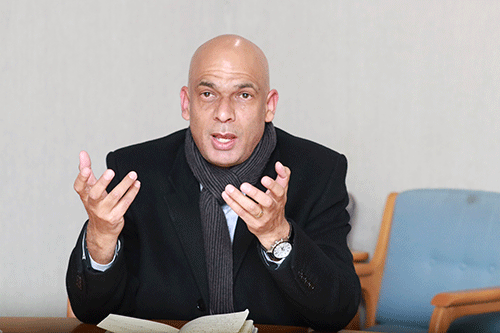A report into the management of struggling railway company TransNamib reccomends that the finance minister considers disciplinary action against executives who received generous bonuses while the company was struggling to pay creditors.
The payments were made without the knowledge of TransNamib’s executive for finance, according to the report that has been kept
under wraps since March.
Four TransNamib executives earned N$700 000 in performance bonuses in 2019, without evidence to back up their purported excellence.
The damning finding is contained in a leaked forensic report by audit firm Ernst and Young (EY), which suggests that the four executives dubiously received performance bonuses, although a performance management system was not in place. Responding to queries, TransNamib said it will not be drawn into replying to leaked documents.
“I have to refer you to the ministry of public enterprises (MPE) since we do not comment on leaked documents, and the document refers to a process initiated by MPE. They would be the correct body to comment on this matter,” said Abigail Raubenheimer, the parastatal’s spokesperson.
The beneficiaries of the payment include TransNamib CEO Johny Smith, property executive Alynsia Platt, human capital boss Webster Gonzo and former engineering executive Ferdinand Ganaseb.
Ganaseb has since left the national rail operator. The submission, which would eventually be signed off by Smith, was made by Gonzo in November 2019, the dossier reviewed by New Era shows.
What is peculiar is that no other TransNamib employee received a performance appraisal, apart from the quartet.
“We refer to this process as ‘selective performance recognition’ due to the fact that none of the other employees (not entitled to a 13th cheque) were assessed or appraised in terms of the performance management policy at this time.
The recommendation goes on to say that the CEO scored 13.8 out of 20, which meets the good performance ‘Exceeds performance requirements’ category, and therefore qualifies for a 15% of [total cost to company] TCTC bonus,” EY found.
Wrong turn
What is worrying, the firm added, was the timing of when the performance bonuses were paid.
While the executives were receiving a pat on the back for a job well done, the entity was struggling to meet its financial obligations with third parties.
“The actual timing of these payments (July 2021 up to October 2021) is also cause for concern, especially when considering the adverse cash flow position of TransNamib that existed during this period,” reads a section of the report.
It continues: “The unpaid creditors’ payments as at 31 May 2021 totalled an amount of N$14 million.”
In July 2021, TransNamib owed N$14.4 million in outstanding medical cover and retirement fund contributions.
“The recommendation and recent payment of the performance bonusses to the selected executives, despite the dire financial position of TransNamib, remains a contentious issue, especially if seen in the context of the ever-growing labour dissatisfaction and poor morale within TranNamib.”
The figure stood at N$17 million in August and N$24 million in October that year, the auditors found.
“We questioned the executive [finance] about the payments of the performance bonusses during the period July to October 2021 in light of TransNamib’s above-mentioned dire cash flow position during the said period. However, he [ Cornwell Chadya] indicated that he had no knowledge of any performance bonus payments during this time.
“We also noted from the relevant surrounding email correspondence that only the CEO [Smith], the executive human capital, Mr Webster Gonzo and Mrs Nico-Ann Alexander were privy to this particular ‘instruction’ and/or the relevant emails during July 2021.”
No synergy
Moreover, the investigators observed a general lack of coordination between TransNamib’s departments, despite Anneline Black’s appointment as executive for operations in 2020. “We noted an apparent general lack of teaming between the relevant departments (operations, commercial and marketing, corporate services, human capital, property and finance) during our interviews, which is perceived to be one of the reasons for TransNamib’s inability to address the historic challenges and inefficiencies,” reads another part.
The lack of synergy has had negative ramifications on TransNamib’s upward mobility.
The lack of teamwork, poor planning, control and capacity-building – needed for the effective deployment of scarce resources were highlighted by EY.
It continues: “The lack of teaming and coordination when negotiating or considering new business opportunities or when considering revisions of existing contracts and failure to consolidate existing strategies, plans and statistics into a combined operational contingency strategy,” were also flagged.
Pay back
The investigation into TransNamib’s affairs was sanctioned by erstwhile public enterprises minister Leon Jooste, following a myriad allegations of maleficence at
the struggling entity.
Jooste has since resigned from both Cabinet and parliament, with his ministry now just a department within the finance ministry. Attempts to get comment from Finance Minister Iipumbu Shiimi proved futile. “Public Enterprises and/or the board could consider recovering the ostensibly irregular and unauthorised payment of performance bonuses from the relevant beneficiaries.
“Public Enterprises (MPE) and/or the could board consider conducting a comprehensive employee survey to establish the extent of the fears, distrust and disillusion within the entity and its management,” said the report.



